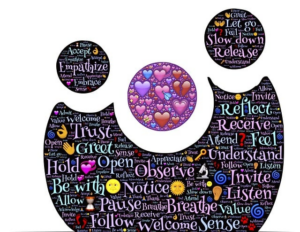Family psychology offers crucial support in improving familial relationships by addressing dynamics, communication, and behaviors using evidence-based strategies. Sessions create a safe space for open dialogue and problem-solving, encouraging active listening, collaborative conflict resolution, and stronger connections. Consulting a qualified family psychologist near you can significantly enhance relational well-being within the family unit. Start by researching local therapists specializing in family therapy, leveraging initial consultations to assess their methods and approach.
Family psychology sessions are an effective way to enhance relational wellbeing and navigate family challenges. Understanding family dynamics is crucial for identifying issues that may include communication breakdowns, conflict resolution problems, or mental health struggles within the family unit. By seeking professional help from a family psychologist near me, families can improve their relationships, develop healthier coping mechanisms, and foster a stronger support system. This article explores these key aspects to guide you towards improved familial connections.
- Understanding Family Psychology and Its Impact on Relational Wellbeing
- Identifying the Need for Family Therapy: Common Challenges and Issues
- What to Expect During Family Psychology Sessions: Techniques and Activities
- Finding the Right Family Psychologist: Tips for Selecting a Professional Near You
Understanding Family Psychology and Its Impact on Relational Wellbeing
Family psychology is a specialized field that focuses on understanding and improving relationships within families. By exploring dynamics, communication patterns, and individual behaviors, family psychologists help identify areas where tension or conflict may arise. They provide tools and strategies to enhance connection, resolve conflicts, and promote healthy development in all family members, especially children.
Seeking family psychology sessions near you can significantly impact relational wellbeing. These sessions offer a safe, supportive space for families to work through challenges together. Through evidence-based practices, professionals help families navigate complex emotions, improve problem-solving skills, and foster an environment of respect, trust, and love—all essential components for strong, fulfilling relationships.
Identifying the Need for Family Therapy: Common Challenges and Issues
Many families face challenges that can impact their overall wellbeing and happiness. Common issues such as communication breakdown, conflict resolution difficulties, behavioral problems in children, or strained relationships between parents and kids may signal a need for professional help. Family psychology sessions have proven to be an effective way to address these concerns by providing a safe space for open dialogue and collaborative problem-solving.
Identifying the specific challenges within a family dynamic is crucial before seeking family therapy. Issues might include frequent arguments, lack of quality time, or unmet individual needs within the family unit. By recognizing these problems, parents and caregivers can take proactive steps towards improving relational wellbeing through the support of local family psychology services near me.
What to Expect During Family Psychology Sessions: Techniques and Activities
During family psychology sessions, you can expect a safe and supportive environment where professionals employ various evidence-based techniques to improve relational wellbeing. Typically, these sessions involve active listening, open communication, and collaborative problem-solving. Therapists often use structured activities designed to strengthen familial bonds, enhance understanding, and resolve conflicts. These might include role-playing exercises, family mapping, or guided discussions focused on each member’s feelings and needs.
The goal is not just to identify problems but also to develop practical strategies for healthier interactions. By participating actively and openly, families can gain valuable insights into their dynamics and learn effective coping mechanisms tailored to their unique situation. Exploring these techniques with a qualified family psychologist, near you or elsewhere, can significantly contribute to fostering stronger connections and overall wellbeing within the family unit.
Finding the Right Family Psychologist: Tips for Selecting a Professional Near You
When seeking family psychology sessions, finding the right professional is a crucial step in enhancing relational wellbeing. Start by researching local practitioners who specialize in family therapy. Many psychologists offer initial consultations, which can help you gauge their approach and whether they align with your needs. Online reviews and recommendations from trusted sources are valuable tools for identifying well-regarded therapists in your area.
Consider factors such as the psychologist’s experience, therapeutic modalities, and areas of expertise when making your selection. Look for someone who demonstrates a deep understanding of family dynamics and relational issues. Additionally, ensure that the therapist has a warm, non-judgmental demeanor, which fosters trust and encourages open communication within the family unit. Remember to ask about their qualifications, training, and any specific techniques they employ to tailor their services to your unique situation.
Family psychology sessions offer a powerful tool for enhancing relational wellbeing. By addressing common challenges through evidence-based techniques, these sessions can foster deeper connections and improve communication within families. If you’re seeking support for your family’s mental health, consider finding a qualified family psychologist near you. Their expertise can guide you towards building stronger, healthier relationships.
